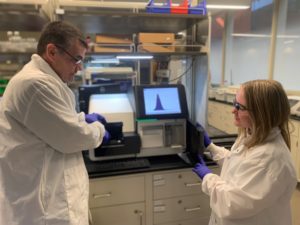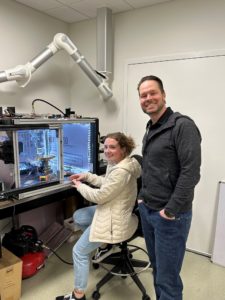
Cutting-edge engineering research received a boost in the fall with seed money from the Scott Foundation.
The Scott High-Impact Research grants are the first of a multi-year commitment from the Scott Foundation. They will provide up to $500,000 annually to address some of the world’s greatest engineering challenges.
“These wonderful projects were selected from a pool of great ideas, and we’re grateful to the Scott Foundation for their generosity in helping launch these impactful new lines of research,” said Ken Reardon, Associate Dean for Research in the Walter Scott, Jr. College of Engineering.
This first batch of projects will tackle health, decarbonizing energy systems and climate change. The researchers involved represent a wide spectrum of departments who contribute to the college’s nearly $88 million in annual research expenditures.
The college’s main areas of research strength include environmental sustainability engineering, climate and weather, infrastructure resilience, health and human-environment systems, and the cross-cutting theme of data and systems.
The 2022-2023 Scott High-Impact Research projects:

Kirk McGilvray in Mechanical Engineering will work with a collaborator in Clinical Sciences to develop immunologically and biomechanically instructive implants that stimulate soft tissue healing in the rotator cuff.
Atmospheric Science researchers Pat Keys, Frances Davenport, Elizabeth Barnes and Jim Hurrell are developing a machine learning tool that will characterize climate impacts on human development between 2013 and 2021 using satellite images. The results will be used to predict future impacts of climate hazards on human development across the globe.
Bret Windom and collaborators in Mechanical Engineering and Systems Engineering will develop the Hydrogen Production via Electrolysis Research (HyPER) Test Bed to enable hydrogen system research at scales exceeding any U.S. academic institution’s current capabilities.
The Colorado CyberBiofoundry provides research infrastructure aiming to produce large sets of quantitative data to guide the development of biotechnology products such as vaccines and gene therapies. Jean Peccoud, Brian Munsky, and Chris Snow are members of the biofoundry steering committee that also includes six faculty from the College of Natural Sciences, the College of Veterinary Medicine and Biomedical Sciences, and the Infectious Disease Research Center.